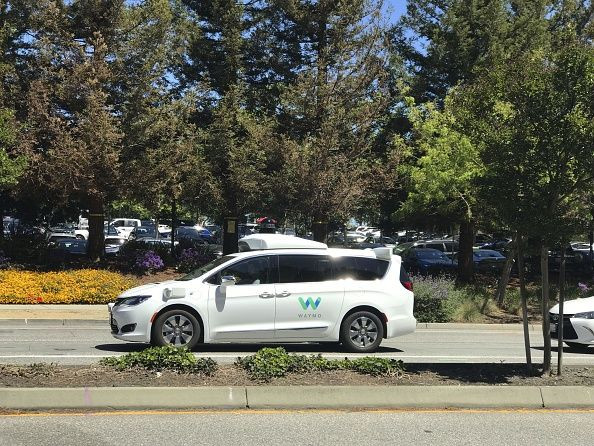Waymo's Fleet Size Is Set To Soar

Waymo, the self-driving subsidiary of Google-parent Alphabet (NASDAQ:GOOGL)(NASDAQ:GOOG), took its first delivery of 100 Chrysler Pacifica minivans supplied by Fiat Chrysler Automobiles (NYSE:FCAU) in December of 2016, adding an additional 500 to its corral in April 2017. Earlier this year, the companies announced that Waymo would be adding "thousands" more minivans to its fleet, though it didn't specify how many.
This article originally appeared in the Motley Fool.
The companies just revealed the extent of their partnership, which will see Waymo adding up to 62,000 Chrysler Pacific Hybrid minivans to its fleet, more than 100 times the 600 it currently drives. While terms of the deal weren't made public, this total could exceed $2 billion, and delivery of the cars is expected to begin later this year. This marks a dramatic escalation of the partnership between the two companies and the biggest deal yet for Waymo.
But there's more
In an even bigger development, the companies revealed that they're in "beginning discussions" that would make Fiat Chrysler cars with Waymo technology available to retail customers. This is the first time the company has publicly acknowledged such talks, though it has long been part of Waymo's strategy.
This revelation follows on the heels of an announcement in April by Waymo and Jaguar, a division of Tata Motors, that the company would be adding as many as 20,000 Jaguar I-PACE all-electric sport-utility vehicles to its growing fleet of self-driving cars. As part of that announcement, Waymo hinted at its long-term ambitions, saying, "With this partnership, we can offer our self-driving service to many communities across the country with vehicles that are safe, quiet, and eco-friendly." (Emphasis by author.)
Remarking on the expanded partnership, Fiat Chrysler CEO Sergio Marchionne said: "FCA is committed to bringing self-driving technology to our customers in a manner that is safe, efficient, and realistic. Strategic partnerships, such as the one we have with Waymo, will help to drive innovative technology to the forefront."
John Krafcik, Waymo's CEO, added: "Waymo's goal from day one has been to build the world's most experienced driver and give people access to self-driving technology that will make our roads safer. We're excited to deepen our relationship with FCA that will support the launch of our driverless service, and explore future products that support Waymo's mission."
Best of breed
Waymo is widely regarded as having the most advanced self-driving technology, having more than 6 million actual miles on public roads and having completed more than 5 billion simulated miles -- far exceeding any other competitor. The company already has tested its self-driving technology in 25 cities across the U.S. including Atlanta, San Francisco, Detroit, and Phoenix. It plans to open its ride-hailing service to the public in Phoenix later this year and will allow customers to request a vehicle using the Waymo app. That service will expand to additional cities at a later date.
Waymo is currently the only company with a fleet of fully self-driving cars (with no one in the driver's seat) on public roads.
The space is heating up
This announcement came on the same day that General Motors (NYSE:GM) announced a $2.25 billion investment by SoftBank Vision Fund in its GM Cruise, the company's self-driving segment. Cruise has been gearing up to release its own fleet of self-driving taxis in 2019.
Waymo and General Motors both were identified by Navigant Research as the leaders among 19 companies developing automated driving systems. GM was given the edge for its production capability.
For my money, however, Waymo gets the nod. The potential to work with a variety of carmakers and suppliers make Waymo something that GM can never be: vehicle agnostic, which provides a more robust opportunity.
Suzanne Frey, an executive at Alphabet, is a member of The Motley Fool's board of directors. Danny Venaowns shares of Alphabet (A shares). The Motley Fool owns shares of and recommends Alphabet (A shares) and Alphabet (C shares). The Motley Fool has a disclosure policy.





















